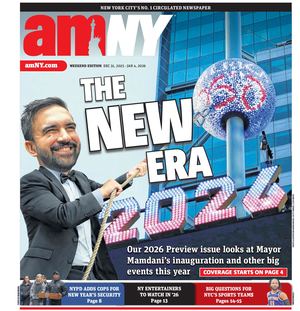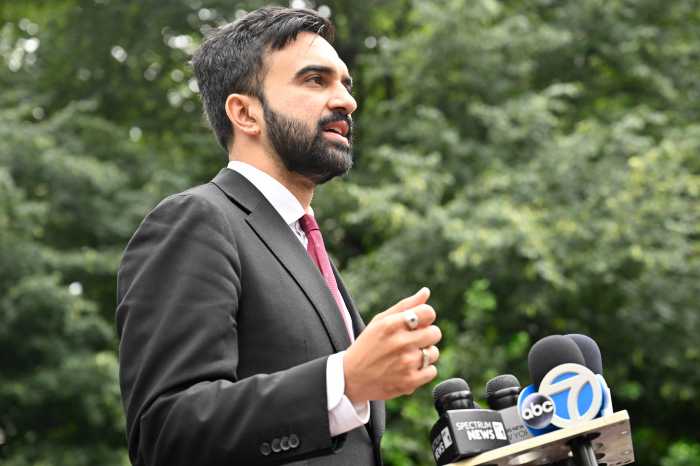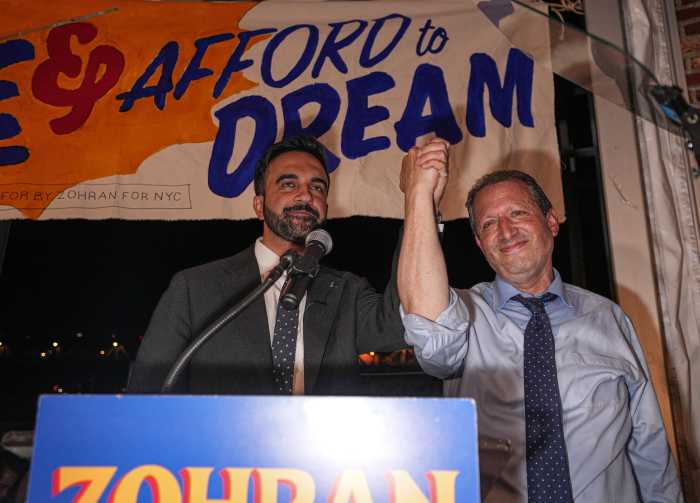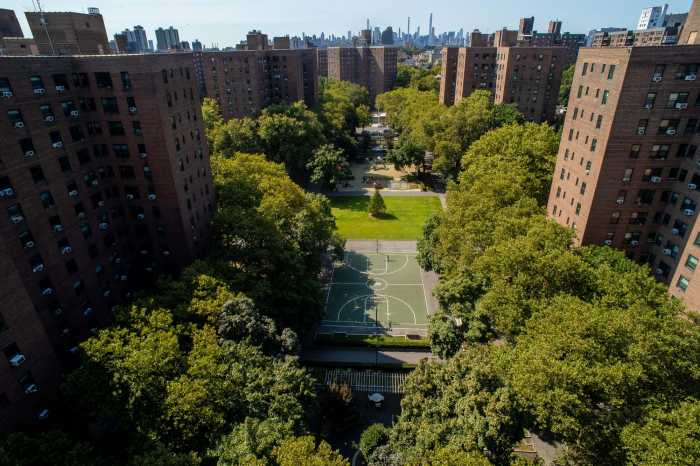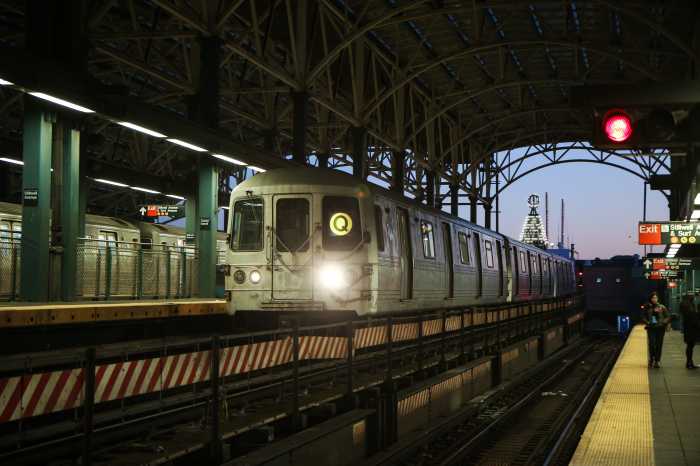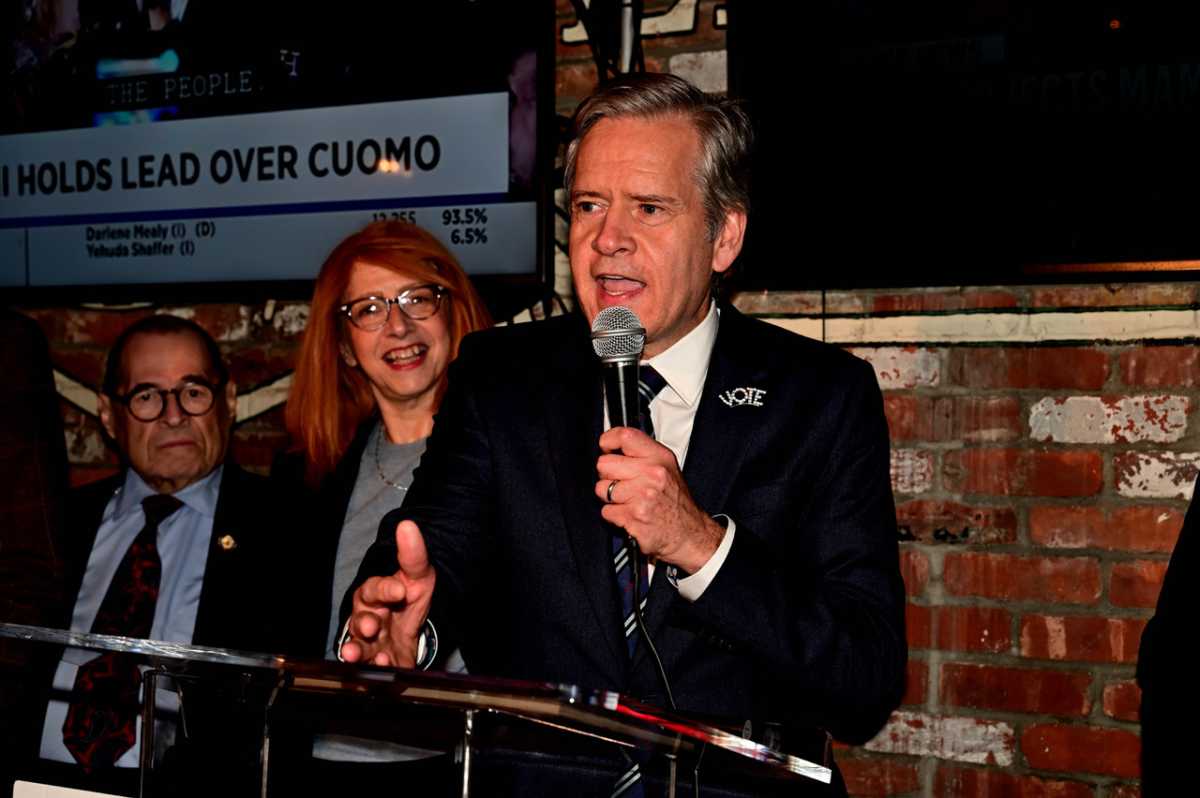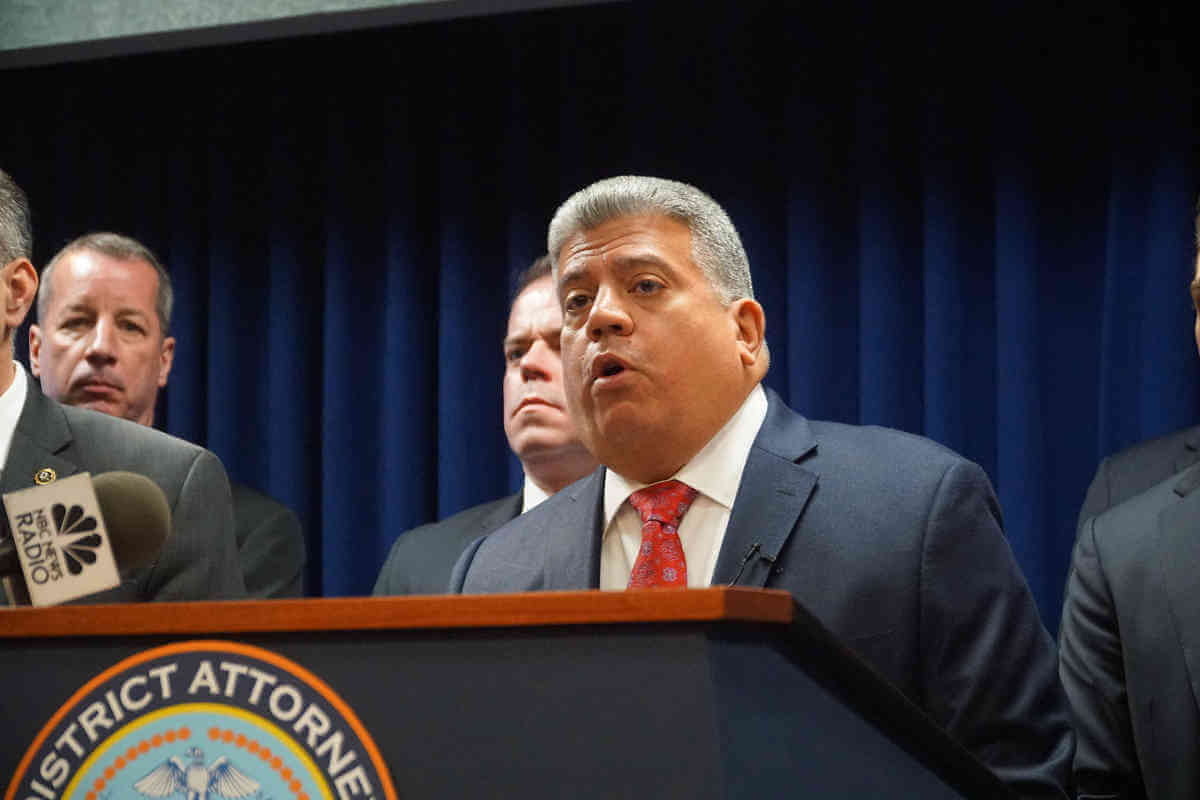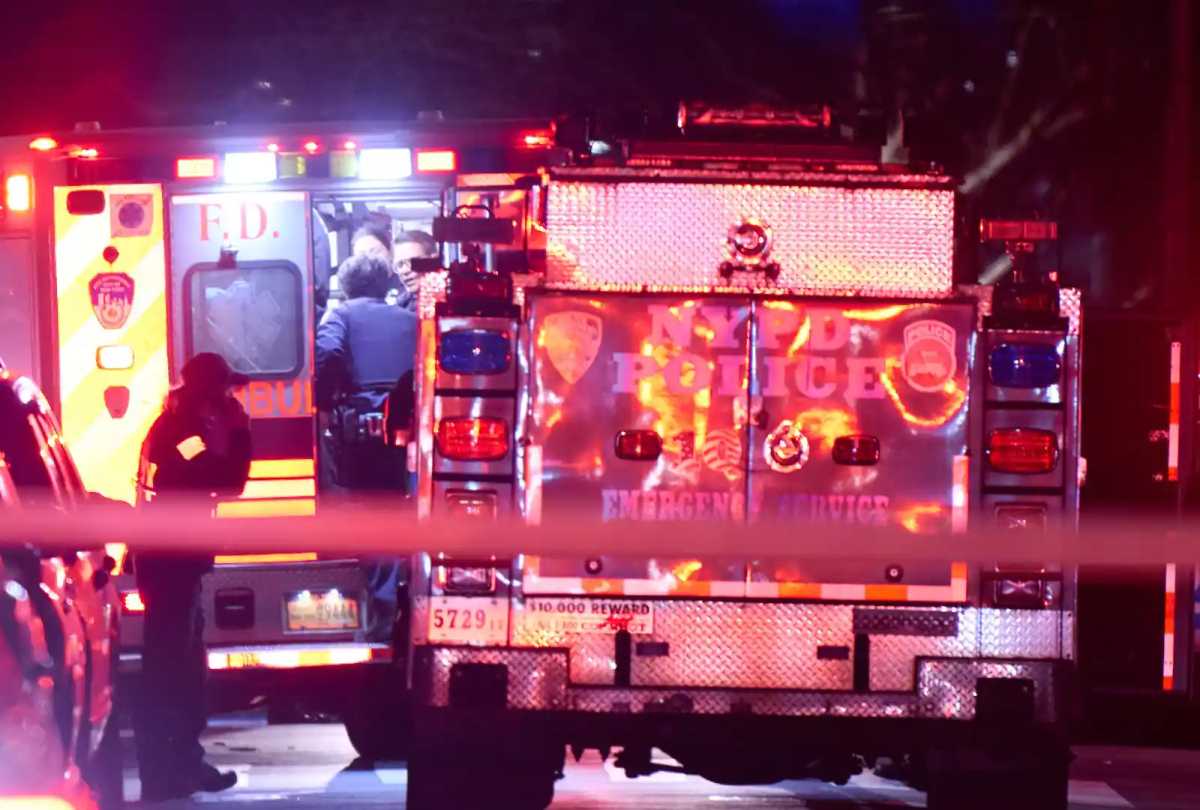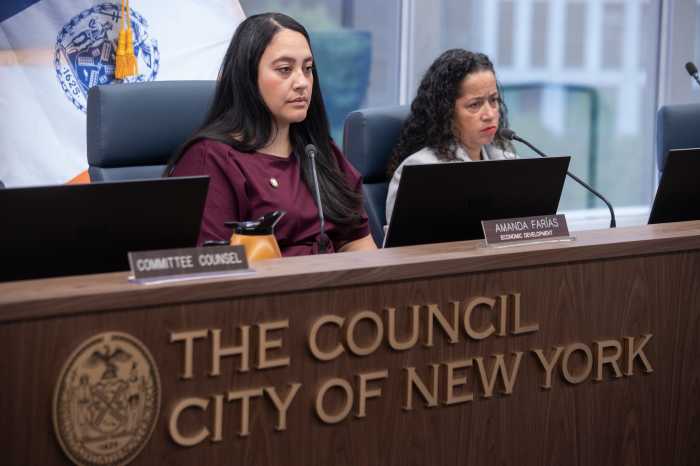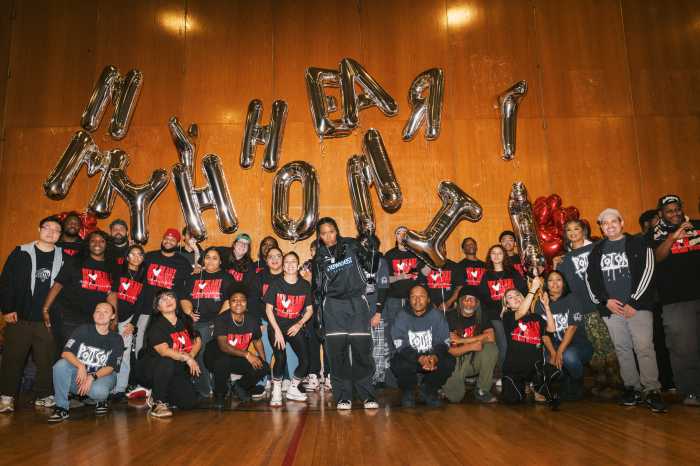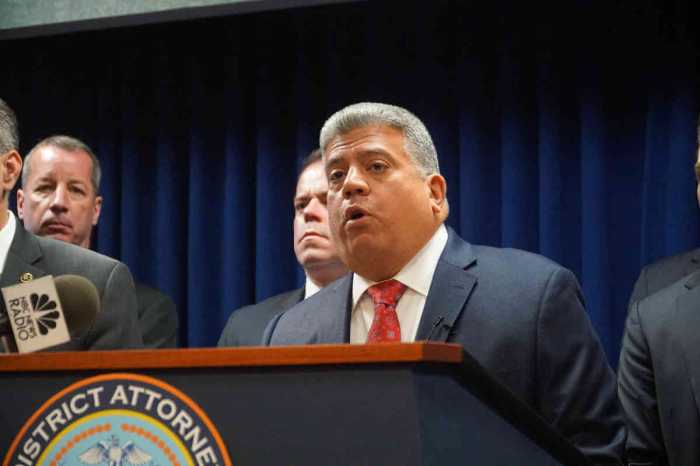The New York City Council’s 51 members unanimously approved a $116 billion city budget for fiscal year 2026 on Monday, moving the city away from spending cuts and expanding service spending.
Though Mayor Eric Adams and City Council Speaker Adrienne Adams shook hands on the budget last week and the council passed the legislation overwhelmingly, some are concerned that it ignores key funding threats facing the city.
Comptroller Brad Lander, who recently conceded in the race for mayor and will end his term in city government in 2026, released a statement Saturday expressing concern that the budget’s lack of allocation to the city’s Rainy Day Fund and General Reserve leaves New York City vulnerable to federal funding cuts.
“New York City faces a critical moment as the Trump Administration prepares to eviscerate essential services, blow holes in New York City’s budget, and erode the rights and wellbeing of New Yorkers. Mayor Eric Adams has been an accomplice to many of those harms,” Lander wrote in his statement. “While the FY26 budget agreement includes some improvements thanks to the Speaker and City Council’s advocacy, it still leaves New York City far too vulnerable to Trump’s ongoing assaults.”
The Senate approved President Donald Trump’s “Big, Beautiful” reconciliation bill on Tuesday with a tie-breaking vote by Vice President J.D. Vance. The bill, which seeks to eliminate health care coverage and social services for millions of Americans and raise the debt ceiling, will head back to the House of Representatives for approval.
Trump has proposed ending the Housing Choice Voucher Program, also known as Section 8, which provides housing assistance and vouchers to low- and moderate-income families renting housing in the private market.
“The budget agreement adds nothing to the Rainy Day Fund or to the General Reserve, and therefore fails to protect the City from the pressing threat of federal budget cuts,” Lander wrote. “It is a dereliction of duty to the future of New York City to fail to shore up our reserves.”
The Rainy Day Fund, officially named the Revenue Stabilization Fund, exists as backup savings for the city when it encounters unexpected financial shortfalls. The General Reserve is a portion of the city’s budget set aside each year that is not allocated to any area in particular.
The Citizens Budget Commission, a fiscally conservative nonprofit watchdog of the city government’s spending, criticized the budget as being “unprepared for federal cuts.”
“The magnitude, programmatic specifics, and timing of the [federal] cuts are still uncertain. But the budget did not put aside any funds to mitigate the initial blow—to preserve some services as the City determines what it will do over time to absorb the recurring and growing fiscal impacts,” the CBC wrote in a statement.
The CBC had recommended that the city deposit “at least” $2 billion into the city’s Rainy Day Fund “to help preserve services and stability during the next recession.”
“Unfortunately, this report misses the harsh truth that too many people living in this city feel that cost-of-living is too high,” Liz Garcia, First Deputy Press Secretary for Mayor Adams, wrote in a statement to amNewYork. “We’re proud that our budget addresses the issues Mayor Adams hears about every day — from the cost of child care, to crime on our streets, to funding for libraries and schools, and more.”
A City Council spokesperson noted in a statement to amNewYork that the city currently has a “record” $8.45 billion in reserves.
“Protecting our city from Trump and his allies’ federal cuts requires making smart investments that protect and support New Yorkers targeted by their harmful actions. That’s what this budget does. This criticism is misguided,” the spokesperson wrote.
A spokesperson for Mayor Adams did not provide comment in time for publication.
Lander, who has increasingly advocated for greater contributions to the city’s reserves amid federal cuts, praised Speaker Adams and the City Council for “insisting” on an additional $42 million for immigration legal services. The Comptroller has been outspoken in his opposition to recent Immigration and Customs Enforcement raids at immigration court houses across New York City, even showing up to court to escort individuals out of their hearings. Lander was arrested in the middle of a raid in June while observing proceedings and was held in detention for several hours.
“Along with the $50 million added in the New York State budget by Governor Hochul and legislative leaders, New York is in position to respond to the emergency created by Trump’s lawless assault on asylum seekers, whose fundamental rights are being stripped away every single day,” Lander wrote in his Saturday statement.
The CBC’s Tuesday report noted that the city outspent its revenue by $610 million in fiscal year 2025, which ended Monday. In using rollover revenue from past years to compensate for the higher spending, the CBC argues, New York City is “spending more than it currently brings in and can only do this because of past good times—a bad sign for the future.”
The budget allocates $112 million in ongoing funding for the city’s universal pre-K and 3-K programs, provides resources for the NYPD to restore its workforce to 35,000 officers, and includes $5 million to expand the FairFares half-priced MetroCard program to individuals earning up to 150% of the federal poverty level. Progressive city councilors have hailed the budget as indicating a “new era” of politics in New York City as City Hall spending moves away from Mayor Adams’ budget cuts.
